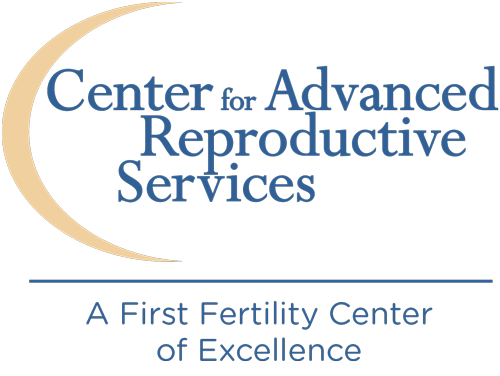June 13, 2022
No Comments
By Ami Chokshi, Integrative Fertility Coach
“If we could give every individual the right amount of nourishment and exercise, not too little and not too much, we would have found the safest way to health.” – Hippocrates, 4th century BCE
Our diets have changed dramatically since Hippocrates. There are a multitude of approaches to eating these days including several popular diets, Paleo, Keto, Mediterranean, and Vegan. For women who are trying to conceive, it can be overwhelming to understand what to eat for fertility, preconception, and pregnancy.
We know a great deal about the link between nutrition and fertility because of the Nurses’ Health Study, where almost 18,000 women who were trying to conceive were followed for 8 years. They tracked both lifestyle and diet, and this study has become a watershed for understanding just how important it is to eat to benefit fertility. Those that followed a highly plant-based plan, including fruits, vegetables, whole grains, plant proteins, beans, healthy fats, and 1-2 servings of full-fat dairy had a 66% decreased risk of ovulatory infertility and a 27% lower risk from other causes.1
Additional sources confirm that nutritional and lifestyle adjustments support optimal preconception health. These guidelines suggest both men and women will benefit, so a couple trying to conceive can work together to optimize their fertility health.
Lower Pesticide Foods
A preconception and fertility diet looks similar to the one in the Nurses’ Health Study, but there is currently a greater emphasis on eating foods with a low-pesticide profile, typically found in organic foods, due to a January 2018 study in JAMA Internal Medicine.2
The results found that that “in a cohort of 325 women undergoing infertility treatment with assisted reproductive technology, intake of high–pesticide residue fruits and vegetables was associated with a lower probability of live birth, while low–pesticide residue fruit and vegetable intake was not associated with this outcome.”3
Since buying organic foods can be cost-prohibitive, for produce, aim to purchase organics for those fruits and vegetables that are the most contaminated. The Environmental Working Group (EWG) produces a yearly review and guide of the most pesticide-ridden produce, called The Dirty Dozen, as well as the cleanest fruits and vegetables, called The Clean 15. There are pocket guides on EWG’s website (https://ewg.org) as well as an app for quick access when grocery shopping.
While each year varies, the Clean 15 produce that is safe to be purchased conventionally often includes avocado, non-GMO sweet corn, pineapple, sweet frozen peas, onions, papayas, asparagus, eggplant, kiwi, cabbage, cauliflower, cantaloupe, mangoes, mushrooms, and honeydew melon.
On the other hand, the Dirty Dozen is the most contaminated conventional produce and are often those with thin, penetrable skins, like strawberries, spinach, kale, collards, mustard greens, nectarines, grapes, apples, peaches, cherries, pears, tomatoes, celery, and bell and hot peppers. It’s best to buy organics while shopping from this list.
What is A Fertility Diet?
The best options for a fertility diet are one that includes plenty of vegetables as well as fruits, whole grains, beans, healthy fats, and quality sources of proteins.
While fruit has been demonized recently with current keto craze, fruits offer powerful vitamins and antioxidants that help fight off oxidative stress caused by poor nutrition, emotional stress, and environmental factors. They are best eaten raw and ripe because they are heat sensitive and because the whole fruit contains blood sugar-stabilizing fiber. Examples include wild blueberries, strawberries, raspberries, prunes, and pomegranates. They can be eaten as a whole fruit or added to a smoothie, which preserves the beneficial fiber when blended (not juiced).
Vegetables, like leafy greens and crucifers, offer much needed minerals and fiber to support healthy blood sugar levels and optimal digestion. 2-3 servings or covering ½ of your plate with vegetables encourages satiety, crowds out junk food, fuels your cells with nutrients, and provides sustained energy throughout the day. It also keeps your mood stable, which is especially helpful when patients are experiencing the stress of several months of trying to conceive. Prebiotic fibers from vegetables help support digestive health and help move bowels and toxins that go with it.
Healthy fats support egg, sperm, and embryo health, provide energy, and protect organs. Some examples of food-based fats to eat include wild-caught salmon (farm-raised salmon should be avoided due to contaminants), nuts (walnuts, pecans, macadamias, almonds), seeds (pumpkin, chia, hemp, sunflower), avocadoes, olives, and coconut. Healthy fats are best eaten as a whole food. Healthy oils like avocado, coconut, olive, and grapeseed, are best when used in smaller amounts, i.e. for cooking, since oils are a processed food. Trans fats, which are often found in donuts, pastries, and French fries, should be avoided entirely.
Organic proteins should be about ¼ of a meal. These include meat, eggs, tofu, tempeh, and beans. Organic is again ideal to avoid the antibiotics and pesticides, that contribute to a greater toxic body burden. Specifically, these include grass-fed beef, free-range chicken, wild-caught salmon, turkey, and smaller, less contaminated fish. Since according to Michael Pollan, “you are what you eat eats,” it’s important to look at what the animal that we are eating is also consuming and source accordingly.
Gluten free whole grains like brown and black rice, quinoa (this is actually a protein-rich seed but often treated as a grain), buckwheat, amaranth, millet, and oatmeal are beneficial staples to a fertility diet. It’s the refined grains, like breads and pasta, that wreak havoc on blood sugar, add to bodily stress, and should be limited.
The focus on gluten free grains relates to how our wheat is produced in the US. The majority of wheat is mostly ridden with pesticides and is genetically-modified to be resistant to glyphosate, which is a carcinogenic herbicide found in Roundup.
How to combine these foods?
When combined appropriately, these foods support optimal blood sugar and prenatal nutrient needs. The aim here is to integrate fiber in the form of vegetables and protein into the three main meals. Typically, ½ of the plate is covered with mostly vegetables and some fruit, ¼ is a protein, and the remaining ¼ would be a healthy fat or a whole grain.
Patients often question how to integrate more vegetables into their meals; here are some examples. Some of these ingredients can be prepped ahead of time to be easily and quickly assembled later.
- Breakfast: 2 eggs scrambled with 2 servings of your favorite veggies (spinach, broccoli, kale, etc.…); Adding 2 handfuls of spinach to a smoothie
- Lunch: Make ahead soup with lots of veggies topped with diced avocado, A large green salad topped with wild-caught salmon
- Dinner: Stir fry of veggies and chicken over steamed cauliflower rice, Dinner bowl with quinoa, sauteed veggies, a grass-fed steak, and a savory chimichurri sauce
- Snacks: Carrots and Hummus; Celery slices with Almond Butter
Given that 1 in 8 women struggle with infertility, many are often seeking ways to better manage the ongoing stressors related to trying to conceive. Eating to support conception can not only be delicious and nutritious, it can support hormonal and digestive health, blood sugar regulation, a healthy inflammatory response, as well as level energy and better mood.
References:
- Souter I, Chiu YH, Batsis M, Afeiche MC, Williams PL, Hauser R, Chavarro JE; EARTH Study Team. The association of protein intake (amount and type) with ovarian antral follicle counts among infertile women: results from the EARTH prospective study cohort. BJOG. 2017 Sep;124(10):1547-1555. doi: 10.1111/1471-0528.14630. Epub 2017 Apr 10. PMID: 28278351; PMCID: PMC5568942.
- Baudry J, Assmann KE, Touvier M, et al. Association of Frequency of Organic Food Consumption With Cancer Risk: Findings From the NutriNet-Santé Prospective Cohort Study. JAMA Intern Med. 2018;178(12):1597–1606. doi:10.1001/jamainternmed.2018.4357
- Chiu Y, Williams PL, Gillman MW, et al. Association Between Pesticide Residue Intake From Consumption of Fruits and Vegetables and Pregnancy Outcomes Among Women Undergoing Infertility Treatment With Assisted Reproductive Technology. JAMA Intern Med. 2018;178(1):17–26. doi:10.1001/jamainternmed.2017.5038

 Retirement isn’t the end of the road…it’s the beginning of clear skies full of adventure. Please join us in wishing Dr. John Nulsen many years of joy and happiness as after 35 years of dedicated service, Dr. Nulsen will be retiring from The Center at the end of this year.
Retirement isn’t the end of the road…it’s the beginning of clear skies full of adventure. Please join us in wishing Dr. John Nulsen many years of joy and happiness as after 35 years of dedicated service, Dr. Nulsen will be retiring from The Center at the end of this year.
